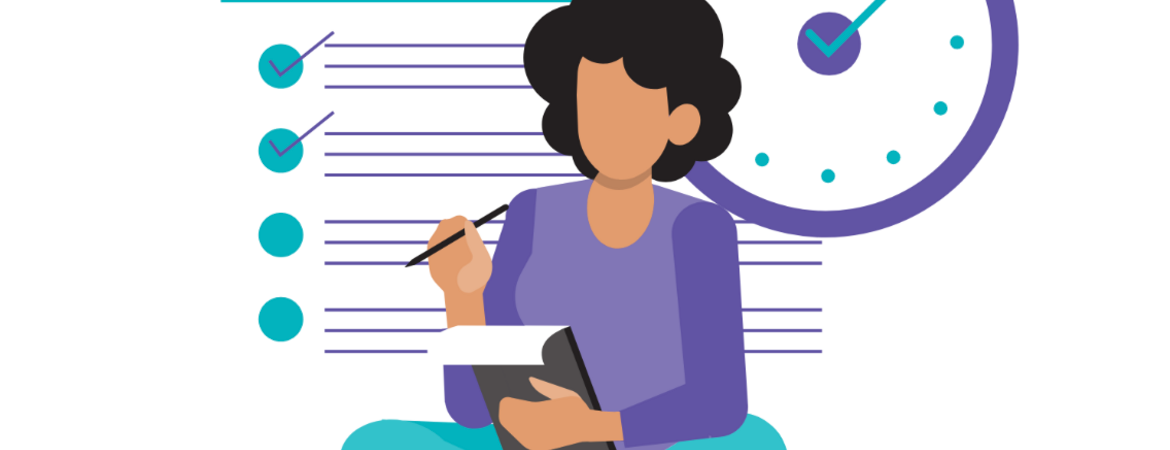Supporting Graduate Students' Academic and Professional Success

Graduate school is hectic. There are endless tasks across several responsibilities that compete for your valuable time. Graduate students may be balancing between:
- Research
- Taking classes
- Teaching classes
- Volunteering
- Leadership activities
- Life outside of graduate school
How does someone manage it all? This blog shares my top strategies for a better schedule: prioritization, mindset shifts about work-life balance, and software tools to reduce cognitive load.
Prioritization
Prioritizing tasks helps you know where to start by assigning levels of importance to your responsibilities. A professor once told me, “Graduate school is constantly juggling balls, and it’s up to you to decide which are rubber and which are glass.” If “rubber ball” tasks do not get done today, it’s okay. The ball won’t break. If you do not complete “glass ball” tasks, they’ll break and cause more problems later.
There are many frameworks to help you prioritize your tasks, such as “glass ball” and “rubber ball” tasks. Most prioritization frameworks are derived from project management in business, but they can easily be adapted to your own life. MoSCoW bases tasks on how necessary they are to function overall. RICE (Reach, Impact, Confidence, and Effort) scores tasks based on their value while considering their effort.
[Image Description: Graphic showing on the left side, MoSCoW Analysis for Must Have, Should have, Could have, Will not have of tasks. On the right side, the RICE method is shown as an equation: reach times impact times confidence divided by effort.]
Caption: Many prioritization frameworks are derived from project management in business, but can easily be adapted to your own life.
Importantly, whatever prioritization method you use should consider your goals and your core values.
Mindset Shifts About Work-Life Balance
As you set your priorities, it may be tempting to categorize non-school tasks as unessential or lower priority; however, these tasks are very important to spend time on each week. However, practicing work-life balance is more difficult than it sounds. When it comes down to actually taking time away from work, there may be guilt, anxiety, or fear that makes it difficult to put the computer away or enjoy your hobbies.
It’s counter-intuitive that taking time away from work will improve the quality of your work. Setting and maintaining boundaries for your time spent on work can prevent burnout, increase creativity, and improve well-being. For example, the summer before Marie Curie discovered new elements, she took a two-month vacation to spend time with her family in France.
[Image Description: An arrow points from one phrase to another, going from “Instead of asking yourself, have I worked enough to deserve rest?” to “Ask yourself, have I rested enough to do my best work?”. On the bottom, a woman demonstrates balance between self-care, hobbies, travel, and work.]
Caption: Rest is not something you earn. It’s something you need.
Your identity is multidimensional and goes beyond graduate school. Investing time in hobbies, relationships, and experiences outside of graduate school can allow you to better weather the ups and downs inside of graduate school since your sense of self-worth and confidence comes from multiple sources.
Software Tools
Once you prioritize your projects and specify your work hours, several software tools are out there to help you create an optimized schedule. The software tool can reduce the cognitive load or the amount of information you are trying to keep in your head at any given time. Automating the small tasks so you don’t have to remember as much gives you time and energy back for your work. Many of them also have student discounts.
Highly recommended tools:
- Akiflow is a daily planner and calendar with a centralized inbox to optimize productivity. As someone with ADHD, Akiflow completely transformed the way I work!
- Sunsama is designed to help you feel calm and stay focused. It includes a focus mode!
- Motion uses AI to build your schedule for you based on your priorities. You put in the information about the tasks, then it creates your calendar for you!
Graduate school is as much about energy management as time management. Strategies for prioritization, work-life balance, and automating tasks can help you manage your energy and time effectively. If you can only implement one strategy from this blog, give Akiflow or another tool a try; it may give you more energy to dive deeper into the others. It takes practice, but you’ve got this!